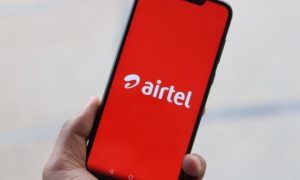Voice call services of popular apps like WhatsApp, Signal, Google Meet, Skype, Facetime, Viber, among others, are likely to come under government regulation. Messaging may be left untouched as it is already being regulated under the intermediary rules, which came into force from May 26, 2021.
Last week, the department of telecommunications (DoT) sent a reference to the Telecom Regulatory Authority of India (Trai) seeking its recommendations on a framework for regulating Internet calls by such apps. Officials said that final rules in this regard will be made after receiving Trai’s recommendations.
The move basically means that there won’t be any fresh regulation for messaging, but these companies would need to take licence from the government to provide local or national long distance (NLD) call services.
What needs to be worked out is how such a segregation between calling and messaging services would be done.
If brought under a licensing framework, such firms would need to provide legal interception of calls, which currently applies to telecom operators, to security agencies. They would also need to pay an annual licence fee to the government.
Sources said that the basis of sending a reference to Trai on this matter is a 2015 DoT-appointed panel report, which had suggested regulation for internet calls via apps.
The recommendation was in the context of net neutrality to bring about a level-playing field between the telecom operators and over-the-top (OTT) players.
The telecom operators had then and even today strongly hold the view that OTTs should be brought under regulation. They believe there should be one service-one rule — why should they be made to pay licence fee to the government and be saddled with a host of regulations while the apps are free to ride on their networks without paying any licence fee and be free from any kind of regulations?
As far as the messaging is concerned, apps like WhatsApp are required to trace the first originator of what is deemed as mischievous messages under the new intermediary guidelines .
In fact, this provision which came into force from May 2021 and led WhatsApp move the Delhi High Court where the matter is currently sub-judice. WhatsApp’s view is that such a measure would require it to break end-to-end encryption, which would mean compromising the privacy of the users. However, the government holds the view that it is merely asking for the originator of the message, which does not involve breaking of any encryption.
The reference to Trai was sent after detailed deliberations within the DoT whether the regulator’s inputs on this matter is required or not. The reason being that Trai had in September 2020 recommended to the government that OTT players like Facebook, WhatsApp, Google, Viber, Telegram, etc, need not be brought under any form of regulatory framework and market developments should be monitored. If required, an intervention can be made at an appropriate time, it had said.
Also, in 2008, Trai had recommended that Internet service providers (ISPs) should be allowed to provide internet telephony, including calls, on normal telephone networks but they will have to pay interconnection charges to the telecom operators. Since January 2021, interconnection charges for telecom operators have been abolished by the Trai.
The DoT initially felt that with Trai’s inputs already available, the government could go ahead and frame the required regulatory norms as policy-making is government’s prerogative.
However, the view prevailed that a fresh reference should be sent and comprehensive recommendations sought for a wider consensus on the issue between the industry and the government.





































